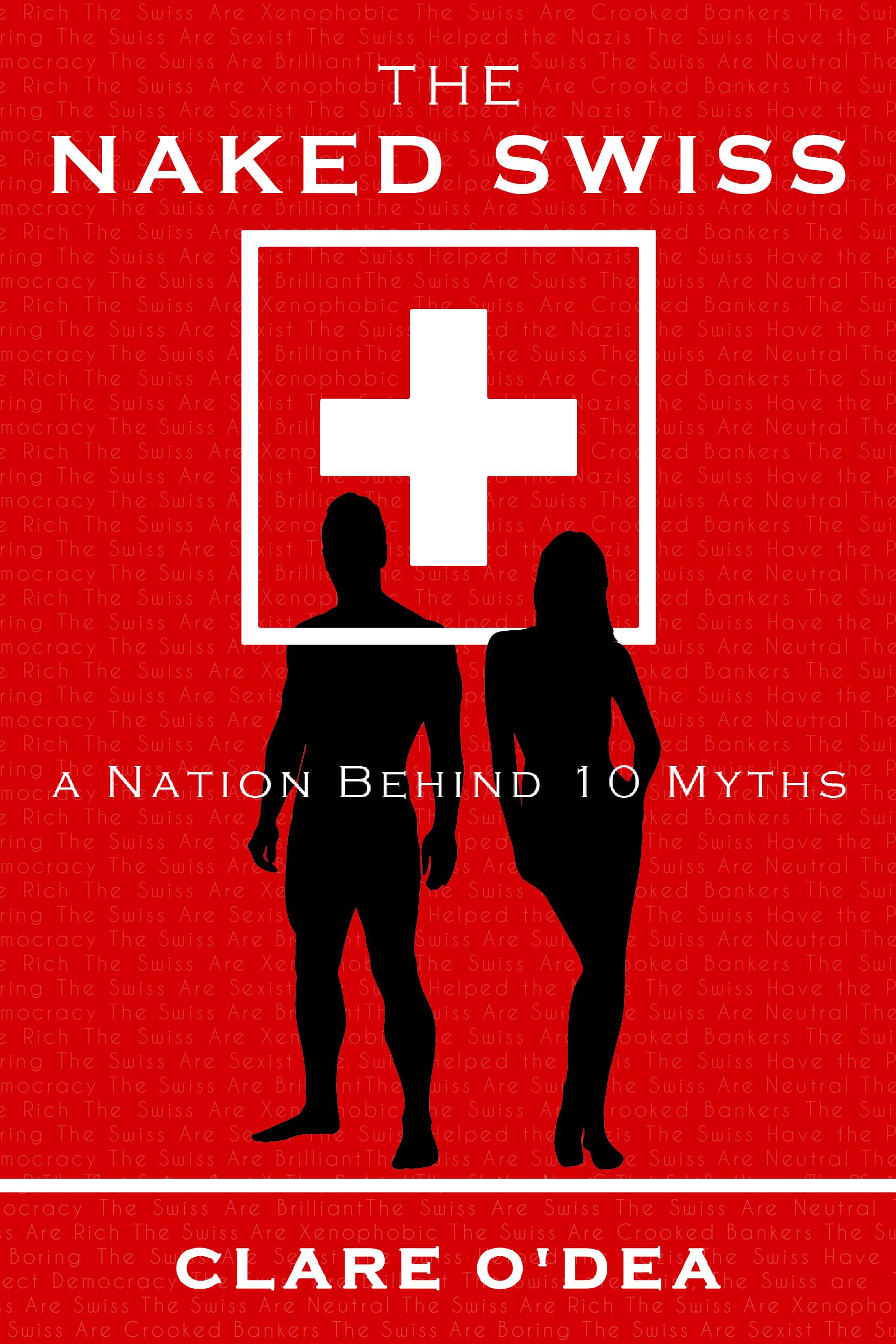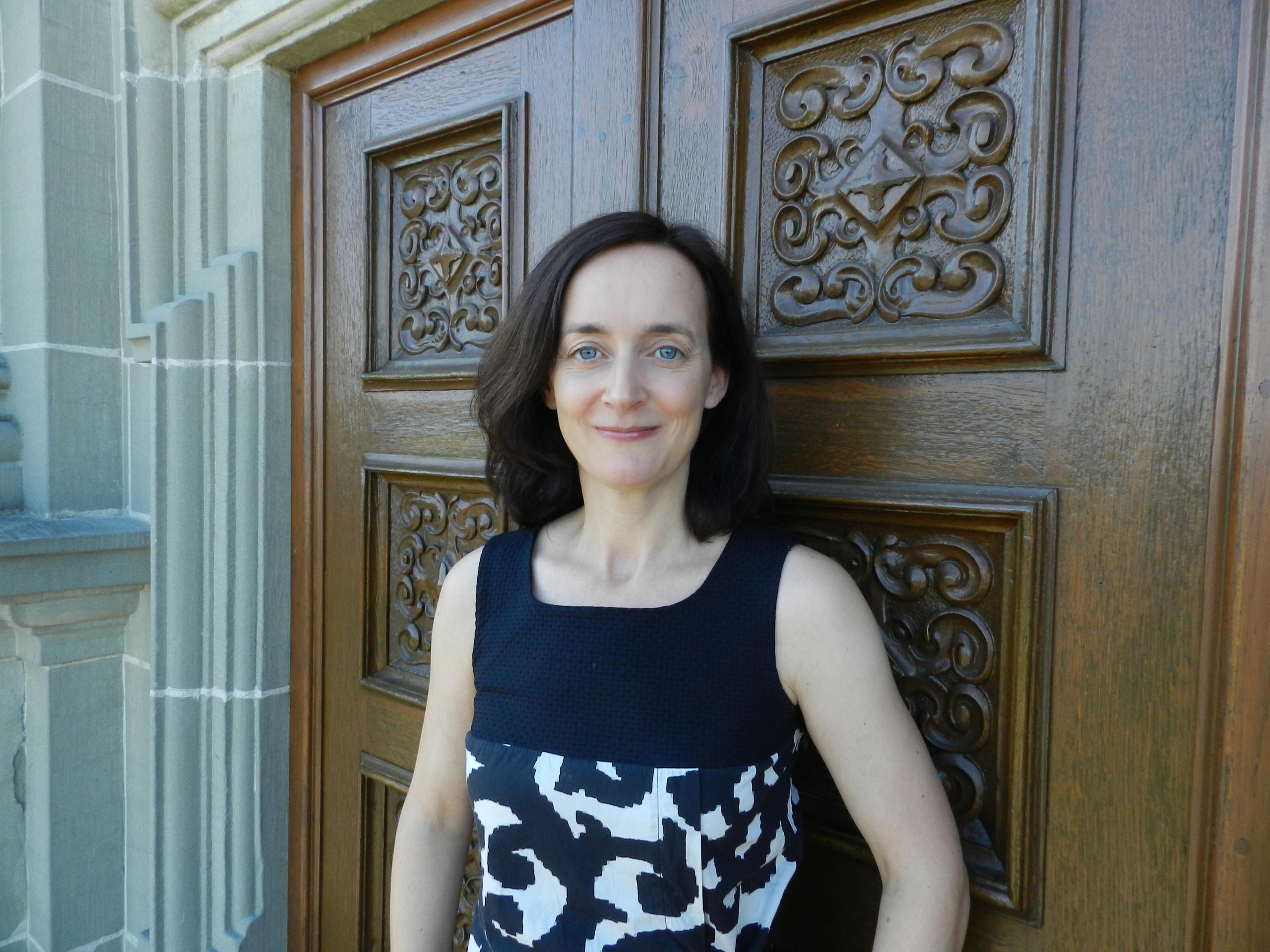
The Naked Swiss: A Nation Behind 10 Myths

On a recent hike in the Swiss Alps, this journalist was caught in a snowstorm. Inadequately dressed, the cold was beginning to bite. Then, through the clouds, I saw a mountain railway built in the 19th century by Swiss engineers – and a café.
Switzerland is often too perfect to be true, as Clare O’DeaExternal link observes in this entertaining book on how the country ticks. Switzerland is a model for the rest of the world – its wealth, economic competitiveness, living standards, transport infrastructure and mountain landscapes.

More
Financial Times
External linkBut recent history has exposed its dark side. Swiss banks have been fined more than $5 billion by US authorities for enabling tax evasion. The country was condemned in the 1990s for its treatment of Holocaust victims’ dormant bank accounts. More recently, it allowed rampant corruption at Fifa, world football’s Zurich-based governing body.
In The Naked Swiss (published by Bergli BooksExternal link), O’Dea attempts to find the real Switzerland. An Irish journalist who worked at the Swiss Broadcasting Corporation, she considers ten “myths” about Switzerland with analysis, observation and anecdote. Myths, however, are about the imaginary. In Switzerland’s case, they are often accurate.

Rich, neutral and brilliant
The “myth” that “the Swiss are rich” is most obviously true. Swiss adults top Credit Suisse’s wealth report with average riches of almost $600,000 in 2015. What is less clear is whether the wealth is the fruit of honest toil, or of Switzerland’s status as a haven for buccaneers and their hidden assets.
Nor is the myth that “the Swiss are neutral” far off the mark. Switzerland is not an EU member. But pressure to clean up the country’s image has encouraged Swiss prosecutors to join international counterparts pursuing corruption in countries such as Malaysia and Brazil.
It has also to be said that “the Swiss are brilliant” in many ways. The country tops global competitiveness rankings and is a world leader in science and engineering. Last year Switzerland opened the longest railway tunnel in the world – 57 kilometres beneath the Gotthard mountain. The trams do run exactly to time, the streets are spotlessly clean.
It is also true, however, that such perfection means “the Swiss are boring”, at least to those used to the grit and pace of big cities.
In turn, Switzerland’s obsession with cleanliness encourages the suspicion that there is something hidden behind the quest for perfection – even in leisure pursuits. “When every country lane is manicured, forest paths are cleared by workers wielding leaf-blowers, and there are picnic tables, outdoor grills or chalets serving refreshments every few miles on mountain tracks, the experience of being in nature is somewhat stage-managed,” O’Dea observes.
Meanwhile, scandals over tax evasion make it harder to dismiss as a myth the claim that “the Swiss are crooked bankers,” or at least were in the past too willing to allow illicit financing. O’Dea devotes a chapter to examining how “the Swiss helped the Nazis” during the Second World War. Commercial interests favoured helping Berlin, as did fears of invasion. Switzerland was not alone in turning away Jewish refugees but O’Dea writes that “it cannot be denied that anti-Semitism contributed in some measure to Swiss cold heartedness”.
Today, a quarter of the population is foreign. Swiss tennis champion Roger Federer’s mother is South African. Foreigners head its biggest companies: Credit Suisse’s Tidjane Thiam is Ivorian; Nestlé’s Mark Schneider is German. Yet the Swiss People’s Party, one of Europe’s longest-established rightwing “populist” parties, portrays foreign criminals as black sheep in its election posters. Are the Swiss “xenophobic”? O’Dea prefers to be optimistic and argues the Swiss might feel less constrained in speaking their mind than people in other countries.
Understanding Switzerland is becoming more important. At a time of upheaval, it is a beacon of political stability. For populists wishing to “smash the system”, it is an idyll: a successful non-EU economy which relies on “direct democracy”: decisions are taken in referendums which reflect “the will of the people”.
Certainly, there is much about Switzerland to envy. But those seeking explanations quickly become enveloped in clouds.
Copyright The Financial Times Limited 2017

In compliance with the JTI standards
More: SWI swissinfo.ch certified by the Journalism Trust Initiative















![The four-metre-long painting "Sonntag der Bergbauern" [Sunday of the Mountain Farmers, 1923-24/26] had to be removed by a crane from the German Chancellery in Berlin for the exhibition in Bern.](https://www.swissinfo.ch/content/wp-content/uploads/sites/13/2025/12/01_Pressebild_KirchnerxKirchner.jpg?ver=a45b19f3)













You can find an overview of ongoing debates with our journalists here . Please join us!
If you want to start a conversation about a topic raised in this article or want to report factual errors, email us at english@swissinfo.ch.